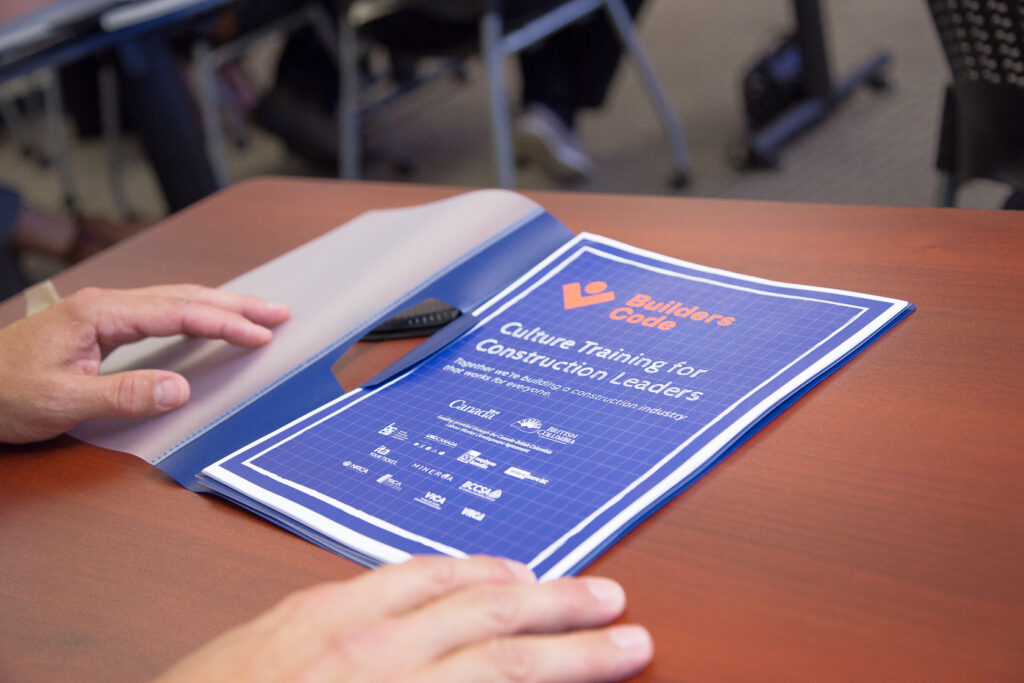Psychological Safety in the Workplace
Training Course
Foster an environment that supports mental health
Through the Psychological Safety in the Workplace training course, individuals discover how they can advocate for themselves in the workplace and contribute to a respectful and supportive work environment.
Psychological Safety in the Workplace
This 2-hour, live, facilitated online course is designed for anybody who works in the construction industry, whether you are a leader or a crew member on a worksite.
Creating an Acceptable Workplace Culture makes sense when we understand the impact of unacceptable behaviour. It’s important to have a clear grasp of how physical safety, productivity, retention, individual mindset, attitude, teamwork and time management are affected when workplace culture is (or isn’t) functioning to its highest potential. Through the Psychological Safety in the Workplace training course, individuals discover how they can advocate for themselves in the workplace and contribute to a respectful and supportive work environment.
Course Summary:
- Defining psychological safety.
- Understanding acceptable and unacceptable behaviours and their impact.
- Understanding and addressing key barriers to inclusivity (eg. bias, stereotyping, microaggessions)
- Learning how to be an active bystander: advocating for yourself and others.
- Respectful communication.
- Fostering mental health through positive workplace culture – we all have a role to play.
- Q&A/Discussions/Exercises/Handouts included.
Course Outcomes:
- Understand how negative behaviors pose psychological/physical safety risks.
- Identify and address barriers that can prevent a positive and respectful workplace.
- Discover ways to take an active role in intervening when unacceptable behaviour occurs.
- Learn how you can contribute to a respectful work environment.
This course is approved by BC Housing for Continual Professional Development (CPD) credits

FAQS
Disclaimer
The information provided is for educational purposes only.
Registration to any of the training options does not grant ownership rights to the training content or related materials. As such, Builders Code
Worksite Culture training content and related materials are not to be used for copying, redistribution, facilitation, or publication.
Thank you for complying




